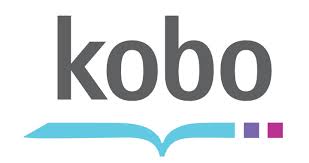How Big data is also changing the publishing industry.

Information technologies led to dematerialization of our lives. We no longer go to the store in order to buy a CD or a DVD, most of us download it and play it on our devices. The same goes for books, more and more people are shifting from paper books to digital books.
When music had its mp3 players symbolised by the legendary iPod, books now have e-readers where the main player is Kindle by Amazon. These shifts transform the whole publishing industry, books’ production, storage and distribution costs go down, increasing publishers’ revenues. They can also now focus mainly on the authors and their promotion, without having to anticipate the number of copies to make or how to distribute them.
As mentioned earlier, author promotion is now more than ever the main focus of publishers. Their main interrogation should than be, which author should I promote in order to maximize my revenues? This is when Big-data plays a new role.
Kobo recently released a report about Big-data and the Publishing industry. Their point is: publishers will not focus solely on the sale numbers of an author but more on the engagement its books generate. They argue that by tracking users’ reading activity, publishers will be aware if the buyer opens the book, if he finishes the book, how fast does he read, at what time, etc… With the following data they can generate rates such as readers’ engagement, being how many buyers finish the book, or opening rate, being how many buyers open the book.
This data can become a key asset for publishers. By checking readers’ engagement, they could spot which small or medium authors have potential to become blockbusters, or which kinds of books generate high engagement and thus higher sales. With opening rate, they can check customer reaction to book tittles or to check the efficiency of a promotion campaign.
Although I prefer the old fashion paper book, I can’t deny the practical aspect of digital books. I believe that as for newspapers, music or movies the ongoing trend will continue and lead to even more digital books. Although the illegal downloading threat is also an issue for this industry, I believe that e-books will benefit publishers that are able to grab the opportunity offered by Big-data.
References:
http://lafeuille.blog.lemonde.fr/2014/10/13/publier-a-lere-des-big-data/#xtor=RSS-3208

Hi there,
This post is actually very close to the comment I recently posted on this blog post.
I agree with the arguments and examples you provide. Although I think, big data for reading still has quite a way to go, it will expand much quicker than we think. The increase of mobile reading will also contribute to that.
The biggest issue it might face however, is the privacy concerns. Unlike with other entertainment industries (movies, music etc), reading is seen by the majority of people as something more private. So once they know that data is being constantly collected on them while they read, this might become an area of concern. Will it hinder the expansion of the process however is doubtful…
Alter, A. (2014). Your E-Book Is Reading You. [online] WSJ. Available at: http://online.wsj.com/articles/SB10001424052702304870304577490950051438304
Hi,could you kindly approve of my next comment (as comments on your posts need moderation) and remove the previous one, as I realized it is below the word limit?
Thank you!
Hi there,
This post is actually very close to the comment I recently posted on this blog post.
I agree with the arguments and examples you provide. Indeed, big data is changing a lot of entertainment industries: TV, music, video games, etc. Although I think big data for reading still has quite a way to go, it might expand much quicker than we think. The increase of mobile reading will also contribute to that. Now that the reading habits of people are changing and more and more people read on their phones, it becomes easier for mobile reading apps to track your reading behaviour as well. What do you read? During which times? How fast? Where are you travelling to at that moment? All these questions will be answered.
The biggest issue it might face however, is the privacy concerns. Unlike with other entertainment industries (movies, music etc.), reading is seen by the majority of people as something more private. “There’s a societal ideal that what you read is nobody else’s business”. So once readers know that data is being constantly collected on them while they read, this might become an area of concern. And as usually happens with personalized data, someone would like to make money from it. So what could happen is that, once again, your personal data will be collected and then sold for target advertising. Will it hinder the expansion of the process however is doubtful…We have seen again and again that although we know that our behaviour online is being tracked all the time, most of us still keep on using Gmail, Facebook, LinkedIn, etc.
What is your opinion on the privacy issue?
Alter, A. (2014). Your E-Book Is Reading You. [online] WSJ. Available at: http://online.wsj.com/articles/SB10001424052702304870304577490950051438304
Bridgwater, A. (2014). The Seven Habits Of Highly Effective Big Data Users. [online] Forbes. Available at: http://www.forbes.com/sites/adrianbridgwater/2014/09/01/the-seven-habits-of-highly-effective-big-data-users